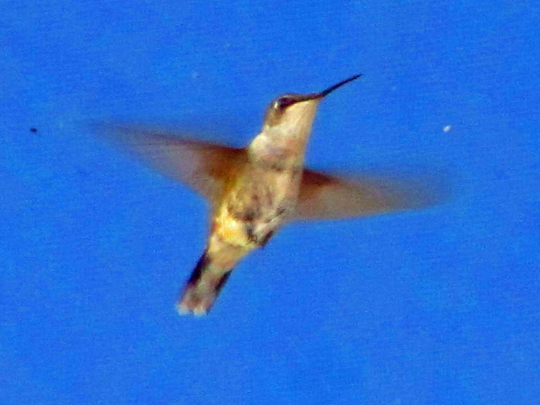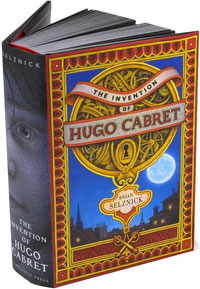The week in read-alouds: Bill Peet
This week, we’ve been revisiting a favorite author. Bill Peet was the first writer my oldest daughter chose independently as a favorite, because his stories are a combination of funny and warm-hearted, and his illustrations are bold and lively and frequently hilarious. (Better than Dr. Suess’, as Older Daughter explained in one of our first literary conversations.) Last year we read his autobiography together as a read-aloud. This week we’ve been reading, for the I-don’t-know-how-manyeth time, some of his stories. The titles below are linked to Bill Peet’s website, where you can explore the reactions of other children and parents and see more samples of the art work of this notable author and 27-year artist and storyman for Walt Disney.
 Cock-a-Doodle Dudley tells the tale of a rooster undergoing a moral dilemma: the other animals think his crowing causes the sun to rise. He tries to be honest about it with them, but everyone except Gunther the goose is convinced that Dudley has a magical connection with Old Sol the sun. Gunther, the quintessential jealous bully, is bent on exposing and discrediting Dudley. His threats finally drive Dudley into danger, and he misses a morning’s crowing. His adventure, and the reaction of Old Sol, make for an exciting and humorous tale.
Cock-a-Doodle Dudley tells the tale of a rooster undergoing a moral dilemma: the other animals think his crowing causes the sun to rise. He tries to be honest about it with them, but everyone except Gunther the goose is convinced that Dudley has a magical connection with Old Sol the sun. Gunther, the quintessential jealous bully, is bent on exposing and discrediting Dudley. His threats finally drive Dudley into danger, and he misses a morning’s crowing. His adventure, and the reaction of Old Sol, make for an exciting and humorous tale.
Buford the Little Bighorn, as this cover makes plain, suffers from overgrown horns. It creates a series of problems for the little fellow, and eventually (as often happens in Bill Peet books), he finds himself alone, with predators (in this case, hunters) hot on his trail. What’s he to do? He discovers the same thing we all hope to find about what might seem to be our special curses or oddities: his horns give him a distinct and unforeseen advantage that not only enables him to escape his enemies, but raises him to fame and fortune. This was a rejoiceworthy find at the library this week, the only Bill Peet book we’d never read. Instead of being shelved with his other books, it was in the early readers’ section.
 This has to be one of the funniest books ever. Jethro and Joel were a Troll concerns a two-headed troll in a power struggle. (No, I’m not going to get all serious and wax eloquent about the sinful nature…) Jethro is happy to spend his days hoeing the turnip field in his/their (lots of fun with pronouns to be had here) secluded subsistence farm, but Joel dreams of carnage and destruction: “This is no fun”, Joel grumbled. “A horrible monster like us should be out rampaging around the countryside, stirring up trouble.”
This has to be one of the funniest books ever. Jethro and Joel were a Troll concerns a two-headed troll in a power struggle. (No, I’m not going to get all serious and wax eloquent about the sinful nature…) Jethro is happy to spend his days hoeing the turnip field in his/their (lots of fun with pronouns to be had here) secluded subsistence farm, but Joel dreams of carnage and destruction: “This is no fun”, Joel grumbled. “A horrible monster like us should be out rampaging around the countryside, stirring up trouble.”
Who will win control over the troll’s enormous hairy body? It’s a fast-paced tale, Younger Daughter’s favorite, and the illustrations never fail to crack me up.
Cyrus the Unsinkable Sea Serpent introduces us to a mild-mannered monster who finds himself bored one day. When his friends learn of his ennui, one offers him some advice:
“If you want to have some fun,” said a shark, “why don’t you go out and wreck a ship, then eat all the passengers?”
“Oh no,” said Cyrus, “I couldn’t do an awful thing like that. Besides, I never eat people, I only eat sardines.”
“You’ve got no more spunk than a jelly fish,” sneered the shark. “You’re nothing but a big sissy.”
What’s a self-respecting sea monster to do? Of course he goes off in search of a ship to destroy. But of course, true to his inner decency, he ends up performing some heroic deeds instead.
 I have to stop. I know. I do. But please, just one more: Hubert’s Hair-Raising Adventure. This one is Bill Peet’s first book, written in rhyme, and it concerns a lion whose splendid mane is burned down to stubble one day due to a spark the flies up while he’s sharpening his claws on a rock. His animal friends suggest crocodile tears as the folk remedy to baldness, and one brave elephant even sets off to get some for Hubert, eventually meeting the crocodile:
I have to stop. I know. I do. But please, just one more: Hubert’s Hair-Raising Adventure. This one is Bill Peet’s first book, written in rhyme, and it concerns a lion whose splendid mane is burned down to stubble one day due to a spark the flies up while he’s sharpening his claws on a rock. His animal friends suggest crocodile tears as the folk remedy to baldness, and one brave elephant even sets off to get some for Hubert, eventually meeting the crocodile:
“I’m sorry,” the crafty Croc said with a sigh,
“But I never shed tears and it’s useless to try.
Why only last week as I swam in the lake
I swallowed a very dear friend by mistake.
At the time I admit that I felt some regret,
For you see my poor stomach was slightly upset.
But I have an old saying that’s ever so true:
‘You can’t have your friends and eat them all too.’”
There is a zaniness to these pictures and stories, but they frequently take up the themes of facing adversity, thinking creatively, standing firm against the taunting of others, and finding a way to belong in community without compromising who you are. I’ve read that though the language is not super-simplified, these books are good for reluctant readers because kids want to find out what happens next so much they’re willing to work. Looking back, I think these stories may have functioned this way for my older daughter last year. I see them as a window she passed through on the way to being won over to reading. I’m afraid they may be too familiar to serve the same purpose for Younger Daughter.


